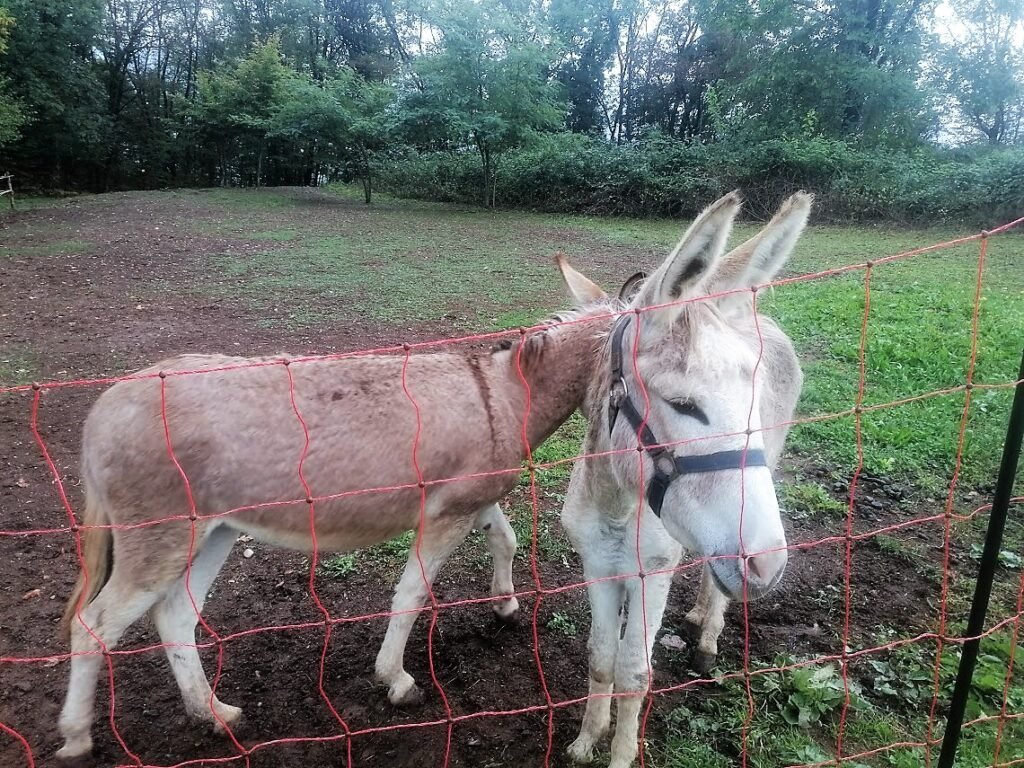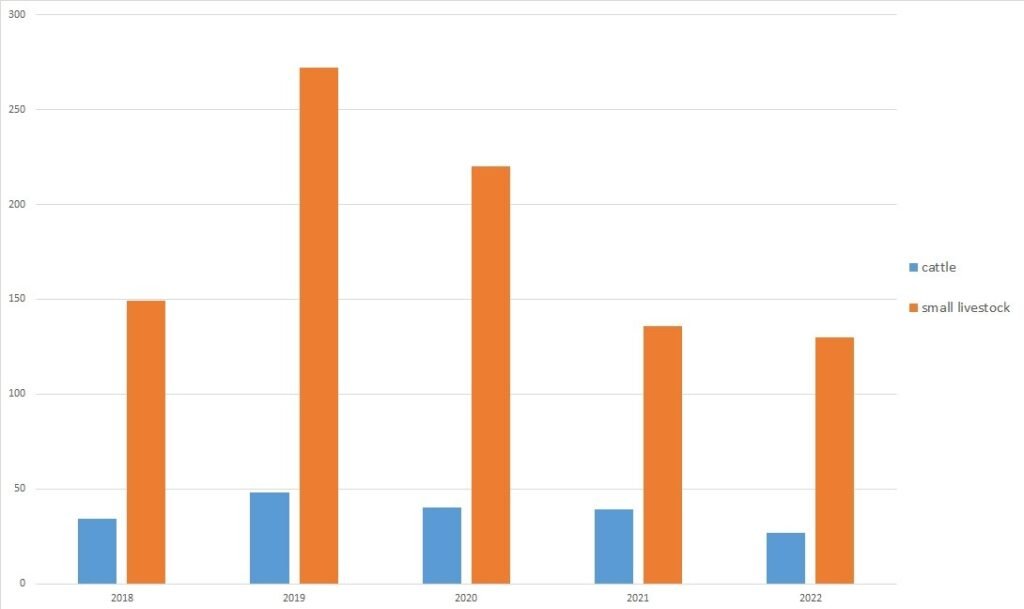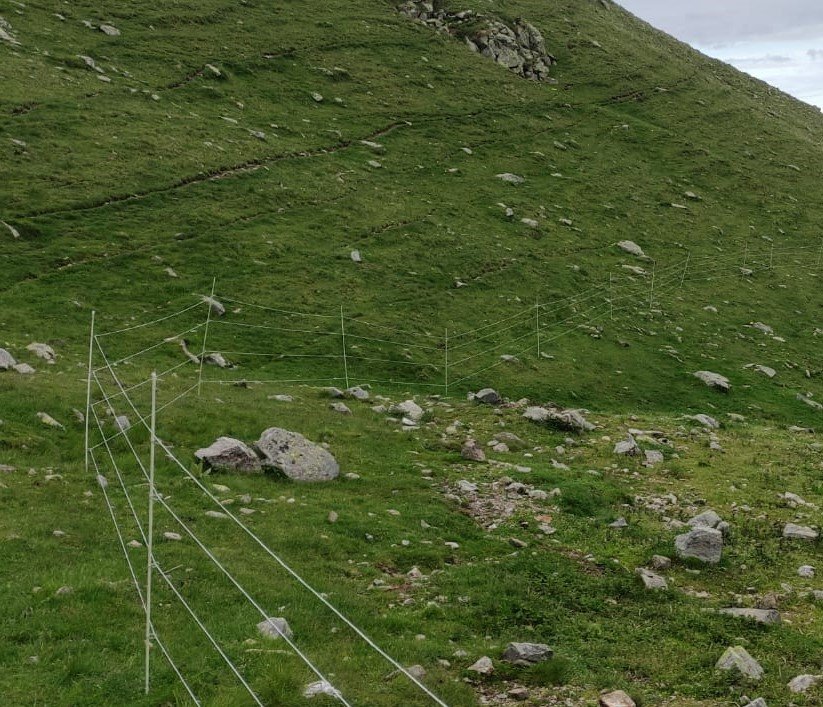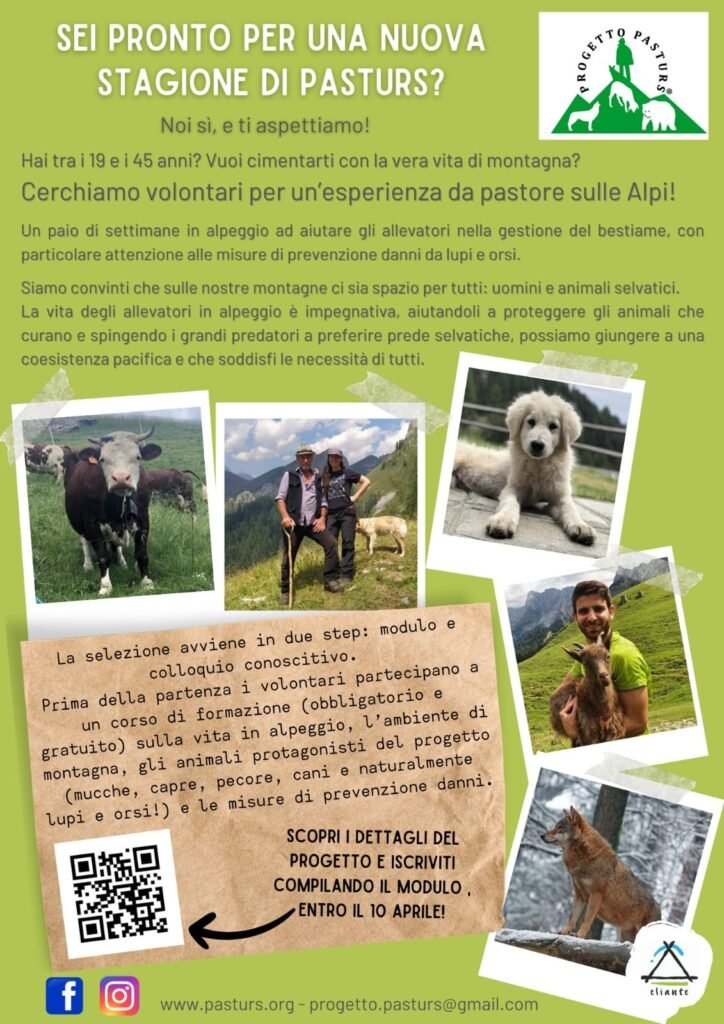Prevention of wolf damage to domestic livestock: a new year of support, training, information activities
There is no doubt that among the main causes of conflict between humans and large carnivores is damage to domestic livestock, and this is particularly evident in recently recolonised areas, in alpine areas, but in recent years also in hilly and lowland areas. We already discussed this HERE.
For more than twenty years now, livestock farmers in the Western Alps have been confronted with the presence of wolves. Experience has shown that the constant availability and presence when needed of personnel capable of providing assistance and information to livestock farmers is effective in ensuring that livestock farmers do not feel abandoned. In addition, there are amateur livestock farmers who cannot access the benefits provided by the various Rural Development Plans but who are often the most exposed to wolf attacks.
To address these needs, the LIFE WolfAlps EU project will operate from 2020 the WPIUs (Wolf Prevention Intervention Units). To date there are 42 WPIUs in the Alps of which 28 in Italy, 2 in France, 7 in Slovenia and 5 in Austria. In Italy they operate in Liguria (no. 4), one in each province, in Piedmont (no. 16) operating in all provinces, in Valle d’Aosta (no. 3), in Lombardy (no. 4) and one in the Dolomiti Bellunesi National Park.
Activities of the WPIUs in the field
The WPIU teams have been active since 2020, and thanks to the communication and awareness-raising work carried out by the various bodies involved, their preventive or post-attack support activities have grown rapidly, enabling them to establish trusting relationships with farmers. Monitoring of prevention systems is also an essential element to assess their effectiveness and improve their performance.
To date, in the Italian territory where the project is active 488 interventions were carried out by the teams: 28% involved support activities for preventive purposes, 28% occurred following a predation, and 44% were required for an evaluation of the effectiveness of preventive measures. 431 farmers who have requested the intervention of the WPIU team; of these, 211 have received, on free loan for one year, prevention systems. 52% of the WPIU interventions were concentrated between May and October in areas of recent natural recolonisation of the wolf or in particularly critical places with a consolidated presence, while 48% in the winter months mainly in lowland/hill areas of recent recolonisation of the species.
It is worth emphasising the growing demand for support (mainly for preventive purposes) from amateur breeders, who generally own animals of endangered or particularly valuable breeds from a genetic point of view in very small numbers compared to professionals, and, as mentioned, do not have access to the funds made available by the Regions for prevention compensation. There are dozens of electrified fences, together with other deterrent systems, provided on loan for use, such as those made available through the 2022 and 2023 calls for tender of the Belluno Dolomites National Park or the Alpi Cozie natural Parks.
A recently published paepr on the journal Carnivore Damage Prevention CDP News presented data on the impact of wolf predation in Piedmont, where cattle have dominated the livestock sector in recent years, although small livestock (sheep and goats) are the most susceptible to predation. In any case, it is essential to define ad hoc prevention strategies both in the management of grazing animals and in the use of prevention systems. For example, since predatory events on cattle are concentrated on animals under 4 months of age (more than 60% of predations, see graph below), it is of strategic importance to adopt specific precautions to protect calves, from keeping calving cows sheltered to not leaving young animals isolated from adults and to scheduling calving so as to reduce births and the presence of young animals in the mountain pasture.

Age classes of cattle depredated by wolves in 2021–2022. Menzano et al. 2023.
In Slovenia, the WPIU have so far carried out 185 interventions in support of farmers, delivering 15 sets of electrified fences (mainly for the protection of sheep and goats) and providing 11 livestock guarding dogs.

The monitoring of preventive measures, including those provided by other agencies and projects, has resulted in a 75-95% reduction in damage. For detailed information on the collected data see the article cited above “Menzano et al., 2023 Protecting cattle from wolves in the Alps”.
October 2022. Menzano et al. 2023.
In France, the WPIU focused on analysing the interaction of wolves with the prevention measures implemented. The Parc National du Mercantour has carried out 70 interventions in the area since the start of the project, while we presented HERE the activity in 2022 of the OFB WPIU.

Among other activities, the WPIU team worked on a pasture that had been heavily affected by wolf attacks. Following inspections carried out in early summer 2023, prior to the arrival of the farmer on his pasture, the fence for the night stand was completely rebuilt to improve its efficiency, The operation was carried out by the WPIU together with 3 people from the departmental services in charge of protection measures in collaboration with the farmer.
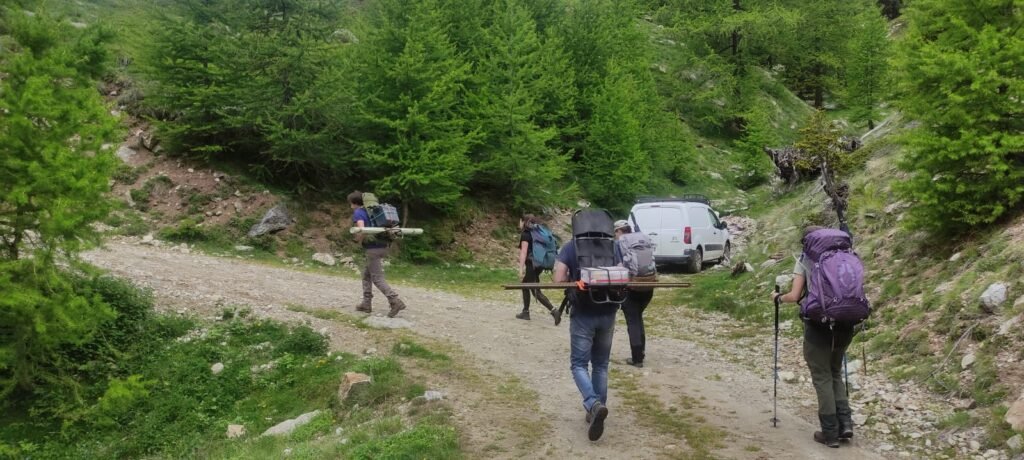
The WPIU team towards the alpine pasture with the fencing material. Photo: PNM Archive.
The WPIU active in Austria, where the wolf has only returned in recent years, are analysing the movements of guard dogs and their sheep in selected pastures, collecting a large amount of data to improve the use of prevention methods, as well as supporting the activities of farmers who request it.
Training and information
In parallel to the above-mentioned activities, the project partners with the WPIU operators organised training and information meetings on the use of different prevention techniques, with particular reference to livestock guarding dogs. Since 2021 to date there have been 7 courses organised by the Italian partners dedicated to breeders and technicians in the sector, 3 courses for veterinarians, and multiple dissemination initiatives to make hikers aware of the presence of guard dogs in tourist areas, which in some cases can cause concern. The presence of dogs is indeed extremely important for breeders but can sometimes cause concern among hikers.

Meeting in Borgosesia (VC). 
Practical session in Valle di Susa (TO).
There are also several initiatives aimed at involving the general public in a voluntary capacity in pastoral support activities. For the past two years, the Lombardy Region, ERSAF and the supporter Eliante have been collaborating with the Pasturs Project for the training and deployment of volunteers in various alpine pastures between Valle d’Aosta and Lombardy. Dozens of help shepherds support the work of the shepherds in the alpine pastures with a focus on prevention systems.






